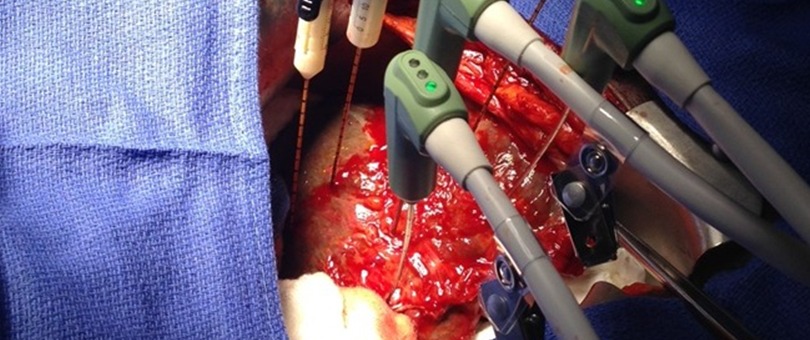Turn to Us for Nanoknife Procedures
NEW HOPE FOR ADVANCED PANCREATIC AND LIVER AND SOFT TISSUE CANCER PATIENTS

IRE LIVER PROCEDURE
Patients once diagnosed with locally advanced Pancreatic, Liver and Soft Tissue Cancers were given little hope and often offered limited treatment options all with certain short life expectancy despite the treatment they were receiving. However a new procedure called Irreversible Electro-poration also known as IRE or NANOKNIFE for short, has changed all that.
Patients are seeing a doubling and tripling of their life expectancy based on recently published reports. Though certainly used in patients with known locally advanced disease it has now found its place in the operating room and used when patients are “unexpectedly” found to have more advanced disease than preoperative imaging shows.
To date Dr Robert Donoway, a surgical oncologist trained at Sloan-Kettering, is the only surgeon performing these Nanoknife procedure in Florida. During the procedure in the operating room after it has been determined to be a non-resectable tumor, fine needle probes are placed through the tumor using ultrasound guidance to ensure their is no injury to critical structures such as Bile Ducts and Portal vein.
High Voltage current up to 3000 volts is delivered through probes in 90 microsecond pulses synchronized with the patients heart rhythm to avoid any cardiac problem. The procedure lasts between 1 and 2 hours using imaging to follow the ablative process. After the procedure is completed the patient is taken to ICU step down for a 24 hour observation period.
Most patients are discharged in 2 to 3 days following surgery because their is no major surgery to recover from and they are able to start postoperative neo-adjuvant type chemotherapy and radiation sooner. After 3 to 6 months of combination treatment patients are re-evaluated and re-staged. A number of Nanoknife procedure patients have been converted from non-resectable to resection candidates which is still deemed the standard of care.
The preliminary results have been very encouraging and have more than doubled many patients life expectancy. Clinical trials are ongoing to use new novel agents including monoclonal antibodies and vaccines as the next line of treatment in this highly selected and heavily pre-treated group.
